
Residencies
As part of our OTD curriculum, the doctoral candidates of the occupational therapy department curate a 14-week project in one of the following areas: clinical practice skills, leadership, theory development, program development, policy development, advocacy, education, research, and administration. The doctoral residency is a multifaceted process that produces practitioners who, although at entry level, have advanced skills in a specific area and are prepared for leadership in the evolving healthcare environment and society.
We are proud of the residency projects that have arisen from our doctoral cohorts and the impact they have left on our university, community, and profession.
Past Residencies
Incoming 2020 OTD Class
Dr. Angelica Catusco, OTD: Empowering Community Caregivers
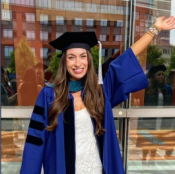
The health of informal caregivers is both an economic and public health issue, and one which is nationwide in scale. The proportion of older people in the population is increasing in nearly every country, this number is expected to rise to 78 million in 2030 and 139 million in 2050 (World Health Organization, 2021). This aging population increases the demand for informal caregivers, who are not typically formally trained or educated. Empowering Community Caregivers is a Five-Week Multimodal Occupational Therapy Telehealth Program Targeting the Wellness of Caregivers of Persons with Dementia.
Faculty Mentor: Dr. Jennifer Gardner
Dr. Sara Frommer, OTD: The Well-Child: Occupational Therapy in Pediatric Primary Care
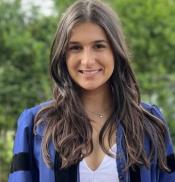
The limited understanding of OT's full scope of practice is one of the most significant barriers to integrating OT into primary care. This doctoral capstone project aimed to address this barrier by educating PCP's and parents/guardians on OT's role in pediatric primary care, particularly in the areas of health promotion and prevention.
Faculty Mentor: Dr. Dina Prisco
Dr. Jacquelyn Pierre, OTD: Occupational Therapy’s Role Supporting Students with Intellectual Disabilities Through Post-Secondary Transitions: An Educational Coaching Module
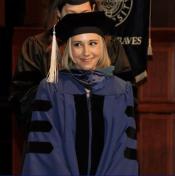
Postsecondary education (PSE) is significantly valuable for students with intellectual disabilities (ID), as it serves as a pathway for developing adaptive behaviors, self-determination, social competence, academic training, career exploration and preparation, independent living, and more. However, despite mandated transition services, students with ID are faring far worse regarding PSE goals than students in other disability categories. Despite the alignment of occupational therapy (OT) with transition services, school-based occupational therapy practitioners (OTPs) report lack of confidence in their knowledge of the role and in advocating to administrative staff for transition involvement. The purpose of this capstone project was to determine the efficacy of educational programming for occupational therapy practitioners in increasing their perceived role competence in transition services for students with intellectual disabilities seeking postsecondary education.
Faculty Mentor: Dr. Zahava Friedman
Dr. Geena Santomo, OTD: Health (Management) is Wealth: An Occupational Therapy Program to Enhance Coping Post-Incarceration Through Yoga & Mindfulness
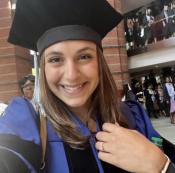
Occupational deprivation is commonly experienced by individuals while incarcerated, which can lead to diminished mental health that negatively impacts one’s ability to effectively partake in their everyday activities and occupations once released. Yoga has been shown to be an effective method of improving aspects of mental health, such as decreasing symptoms of stress, depression, and anxiety, and has the potential to do so among individuals post-incarceration. This capstone project aimed to fill gaps found in the literature through the design and implementation of an occupational therapy-based program that utilizes yoga practices to support symptom management (in the overall context of health management) amongst formerly incarcerated individuals to aid them in successful reentry.
Faculty Mentor: Dr. Jennifer Gardner
Dr. Olivia Volpetti, OTD: A World of Wellness
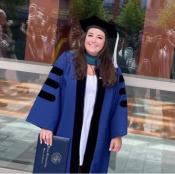
A World of Wellness is a small group program developed for health management and diabetes prevention among adults with I/DD. It utilizes 5 key components from Lifestyle Redesign to provide proactive prevention services for this population. The goal of the program is to reduce the incidence of type 2 diabetes and it’s associated complications and fatalities.
Faculty Mentor: Dr. Victor Michael Camacho & Dr. Danielle Centi
Incoming 2019 OTD Class
Dr. Molly G. Dunn, OTR, OTR/L: Breaking the Silence: Development of a Continuing Eduction (CE) Course on Elder Abuse for Occupational Therapy Practitioners
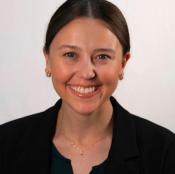
The purpose of this project was to design and publish an evidence-based CE course through the American Occupational Therapy Association (AOTA) to teach occupational therapy practitioners how to identify, address, and report elder abuse.
Faculty Mentor: Dr. Danielle Centi
Dr. Erik M. Horn, ATC, OTD, OTR/L: Mentorship: A Pathway to Success
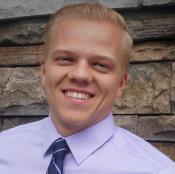
The residency capstone project entitled, “Mentorship: A Pathway to Success”, provided educational modules for occupational therapists in the skills of mentoring. These modules were the foundation needed for a good mentoring program within the residency site at JFK Johnson Rehabilitation Institute. Training mentors to help entry-level clinicians transition into practice, those changing practice settings, and those needing additional support is crucial to the field of occupational therapy. The positive outcomes of this program added to the existing body of knowledge that training mentors in a mentorship program is needed to ultimately help mentees gain the confidence and support in the development of their abilities, talents, and contributions to patient care.
Faculty Mentor: Dr. Mariann Moran
Incoming 2018 OTD class
Dr. Claudia Salinas, OTD, OTR/L: The Implementation of Kid Kapable: An Occupational Therapy Group Using Gymnastics as the Means for Change for Children with Motor Skill Difficulty to Promote Social Participation
The purpose of Kid Kapable was to use an occupational therapy group using gymnastics as the means for change for children with motor skill difficulty to promote the primary outcome of social participation and secondarily develop strength, range of motion, and balance (n=3). Programmatic outcomes were measured using the Canadian Occupational Performance Measure (COPM), the PROMIS® Pediatric Item Bank v2.0 – Peer Relationships – Short Form 8a or PROMIS® Parent Proxy Bank v2.0 – Peer Relationships – Short Form 7a, manual muscle testing, goniometry, and the Pediatric Balance Scale.
Faculty Mentor: Dr. Jennifer Gardner